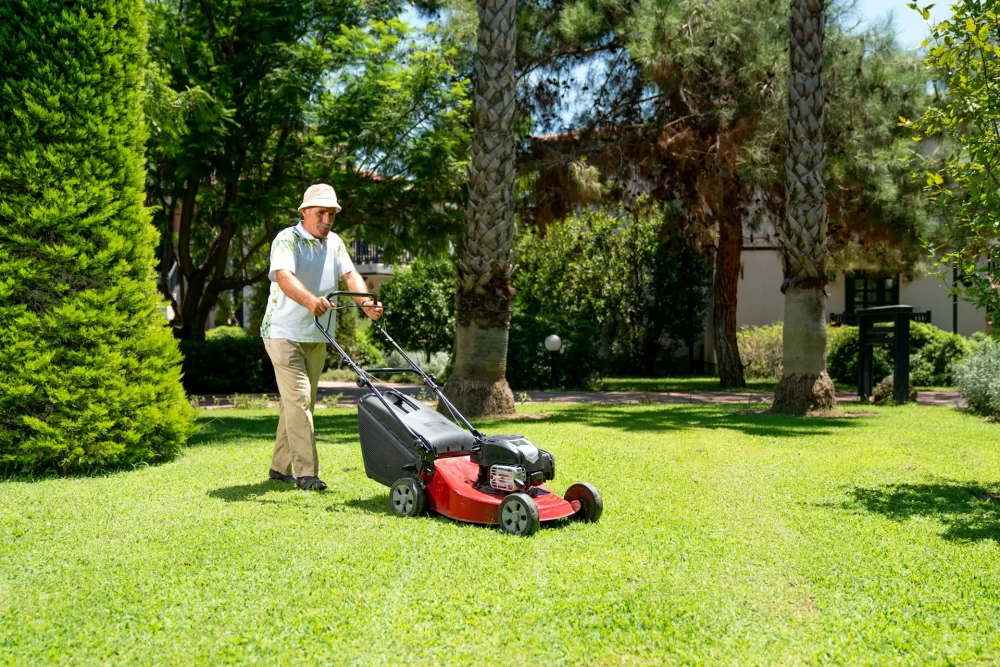
Why Lawn Fertilization is Crucial for Your Lawn's Health
Have you ever wondered why some lawns always seem greener and healthier than others? You might have noticed your neighbor’s perfectly manicured lawn, lush and vibrant, while your own seems a little lackluster. The secret to their lawn’s success could lie in regular lawn fertilization. In this article, I’ll share my journey of discovering the importance of lawn fertilization, the benefits it brings, and how it can transform your yard into a beautiful, thriving green space.
The Role of Fertilization in Lawn Health
Lawn fertilization is essential for providing the nutrients your grass needs to grow strong and healthy. Just like any living thing, grass requires food to thrive. While soil does contain some nutrients, it often lacks the specific elements your lawn needs to reach its full potential. That’s where fertilization comes in. By applying the right type of fertilizer, you’re replenishing your lawn’s nutrient supply, which in turn promotes growth, improves color, and helps the grass withstand environmental stresses.
In my own experience, I learned that fertilization isn’t a one-size-fits-all solution. Different types of grass have different needs, and factors like soil quality, climate, and the time of year also play a significant role in determining when and how to fertilize your lawn.
What Happens When You Skip Fertilization?
At one point, I decided to cut corners and skipped fertilization for an entire season, thinking it wouldn’t make much of a difference. Boy, was I wrong! By the time summer rolled around, my lawn looked patchy and unhealthy, with noticeable yellowing in some spots. My neighbor’s lawn, on the other hand, was still lush and green. That’s when I realized the importance of maintaining a regular fertilization schedule. Without proper nutrients, your grass becomes weak, more susceptible to disease, and less able to resist drought or pest damage.
Skipping fertilization can result in a thinner lawn, more weeds, and a greater need for lawn repairs. If you’re seeing these signs, it’s time to take action before things get worse.
How Lawn Fertilization Works
Understanding how lawn fertilization works can help you appreciate its importance. Fertilizers are typically made of three key nutrients: nitrogen (N), phosphorus (P), and potassium (K). Each plays a specific role:
- Nitrogen (N): Promotes leafy, green growth and helps the lawn recover from stress.
- Phosphorus (P): Supports root development and enhances the overall health of the plant.
- Potassium (K): Improves the lawn’s resistance to diseases, drought, and pests.
Fertilization isn’t just about applying these nutrients once and forgetting about it. The timing and type of fertilizer matter too. For instance, in the spring, lawns generally need more nitrogen to promote growth after the cold winter months. On the other hand, in the fall, potassium becomes more important to prepare the grass for winter.
When to Fertilize Your Lawn
One of the biggest questions I had when starting my lawn care journey was when to fertilize. There are several factors to consider, but generally speaking, fertilization should happen at least two to four times a year, depending on your location and the type of grass. Here's a breakdown of when fertilization is most effective:
- Spring: The first application should be done early in spring to give your lawn a strong start. This is when your grass is coming out of dormancy, so it needs a boost to grow.
- Summer: Depending on the weather, a light summer feeding can help keep the lawn healthy. However, be cautious not to over-fertilize during this time as it can lead to burn or stress from heat.
- Fall: The fall fertilization helps prepare your lawn for the winter months. This application is crucial for ensuring your lawn can survive through colder weather and come back strong in the spring.
- Late Winter: In some areas, a light winter application can help prepare the lawn for spring, especially in colder climates where your lawn goes into dormancy.
The best way to know for sure when to fertilize is to consult with a lawn care professional. They can assess your specific needs and create a custom schedule based on the unique factors in your yard.
Choosing the Right Lawn Fertilizer
There are many different types of fertilizers out there, and it can be overwhelming trying to choose the right one for your lawn. I went through a trial-and-error process of testing various fertilizers, and here's what I learned:
- Slow-release fertilizers: These are great for providing a steady, consistent supply of nutrients over time. They reduce the risk of burning the grass and are ideal for busy homeowners who don’t want to fertilize as often.
- Liquid fertilizers: If you need a quick fix or have a specific problem (like yellowing grass), liquid fertilizers can deliver nutrients more rapidly, but they may require more frequent applications.
- Organic fertilizers: These are an excellent choice if you're looking for a more eco-friendly option. Organic fertilizers often improve soil quality over time and can be less likely to cause damage compared to synthetic alternatives.
After experimenting, I found that a balanced, slow-release fertilizer worked best for my lawn. It provided continuous feeding and kept my grass healthy without worrying about over-fertilizing.
Finding Lawn Fertilization Services Near Me
If you’re new to lawn care or simply don’t have the time to maintain your lawn, hiring a professional lawn fertilization service can be a game-changer. Lawn care experts have the knowledge and tools to apply the right fertilizers at the correct time, ensuring your lawn gets the best care possible. When searching for lawn fertilization services near you, consider these factors:
- Reputation: Look for a company with positive reviews and a history of satisfied customers. Word of mouth and online reviews can give you an idea of the service quality.
- Experience: Choose a service provider that has experience working with lawns similar to yours, whether it’s a specific grass type or challenging environmental conditions.
- Customization: The best lawn care services will create a personalized plan for your lawn’s unique needs, instead of offering a one-size-fits-all approach.
When I decided to hire a lawn care service, I made sure to ask about their fertilization methods and what products they used. After working with a professional service, my lawn looked better than ever, and I didn’t have to worry about doing everything myself.
Conclusion: The Benefits of Lawn Fertilization
Regular lawn fertilization is an investment that pays off in the long run. Whether you’re looking for a lush, green lawn or want to improve your yard’s overall health, fertilizing your lawn is one of the most effective ways to achieve that goal. By understanding the science behind fertilization, finding the right service, and sticking to a schedule, you can enjoy a lawn that’s the envy of your neighborhood. And if you're ever in doubt, don't hesitate to reach out to a lawn care professional for guidance. Trust me, it’s worth it!








